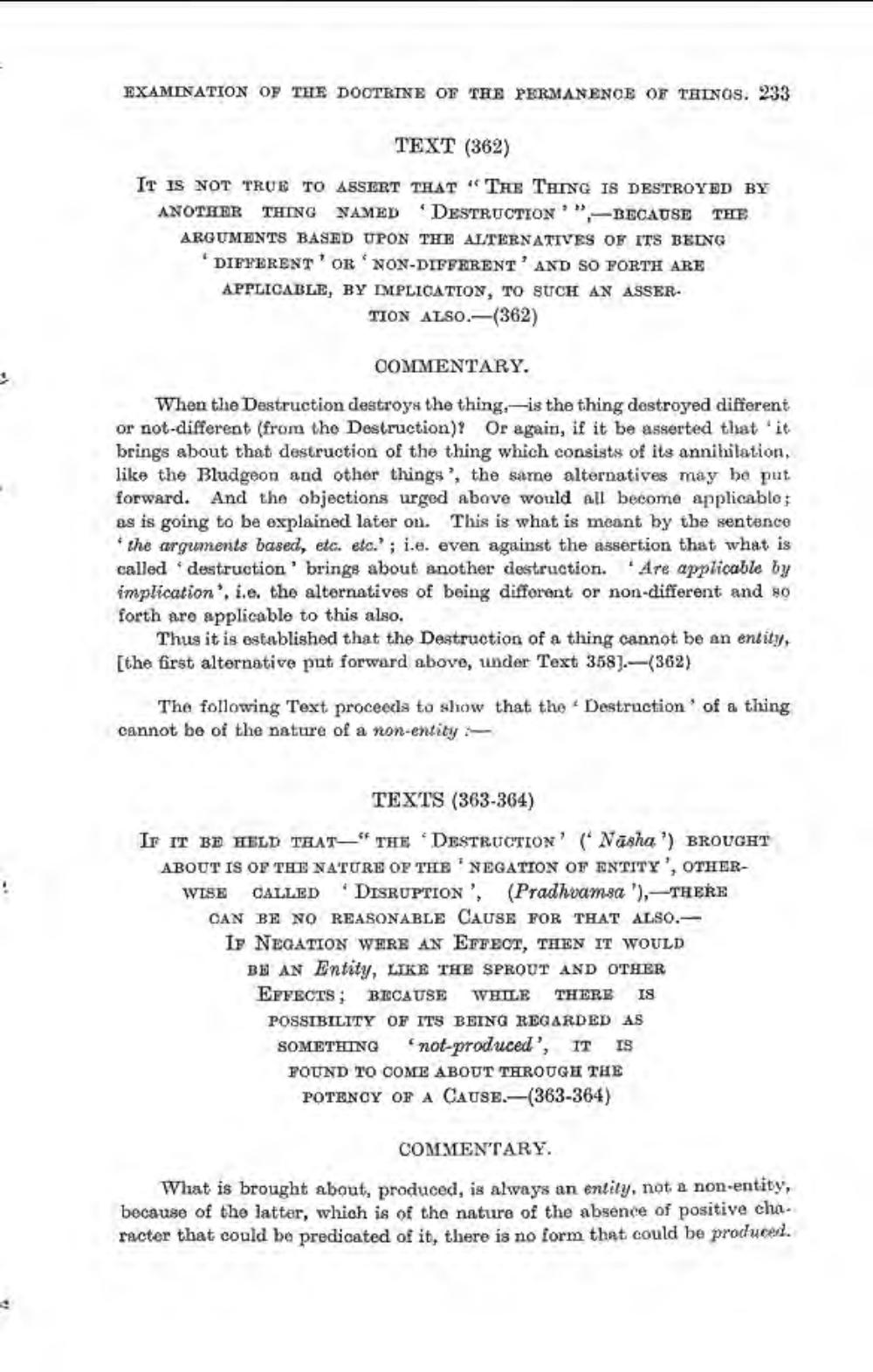________________
EXAMINATION OF THE DOCTRINE OF THE PERMANENCE OF THINGS. 233
TEXT (362) IT IS NOT TRUE TO ASSERT THAT THE THING IS DESTROYED BY ANOTHER THING NAMED "DESTRUCTION", BECAUSE THE ARGUMENTS BASED UPON THE ALTERNATIVES OF ITS BEING
DIFFERENT' OR 'NON-DIFFERENT'AND SO FORTH ARE APPLICABLE, BY IMPLICATION, TO SUCH AN ASSER
TION ALSO.—(362)
COMMENTARY. When the Destruction destroys the thing.—is the thing destroyed different or not-different (from the Destruction)? Or again, if it be asserted that it brings about that destruction of the thing which consists of its annihilation, like the Bludgeon and other things, the same alternatives may be put forward. And the objections urged above would all become applicablo; as is going to be explained later on. This is what is meant by the sentence *the arguments based, eta eto.'; i.e. even against the assertion that what is called destruction' brings about another destruction. Are applicable by implication', i.e. the alternatives of being difforent or non-different and so forth are applicable to this also.
Thus it is established that the Destruction of a thing cannot be an entity, [the first alternative put forward above, under Text 358).-(362)
The following Text proceeds to show that the Destruction of a thing cannot be of the nature of a non-entity
TEXTS (363-364)
IF IT BE HELD TEAT—5* THE DESTRUCTION (Nasha') BROUGHT ABOUT IS OF THE NATURE OF THE NEGATION OF ENTITY', OTHERWISE CALLED "DISRUPTION! (Pradhvamsa'), THERE CAN BE NO REASONABLE CAUSE FOR THAT ALSO.IF NEGATION WERE AN ETFECT, THEN IT WOULD BH AN Entity, LIKE THE SPROUT AND OTHER EFFECTS; BICAUSE WHILE THERE IS POSSIBILITY OF ITS BEING REGARDED AS SOMETHING not-produced', IT IS FOUND TO COME ABOUT THROUGH THE POTENCY OF A CAUSE.—(363-364)
COMMENTARY.
What is brought about, produced, is always an entity, not a non-entity, because of the latter, which is of the nature of the absence of positive cha. racter that could be predicated of it, there is no form that could be producer.




